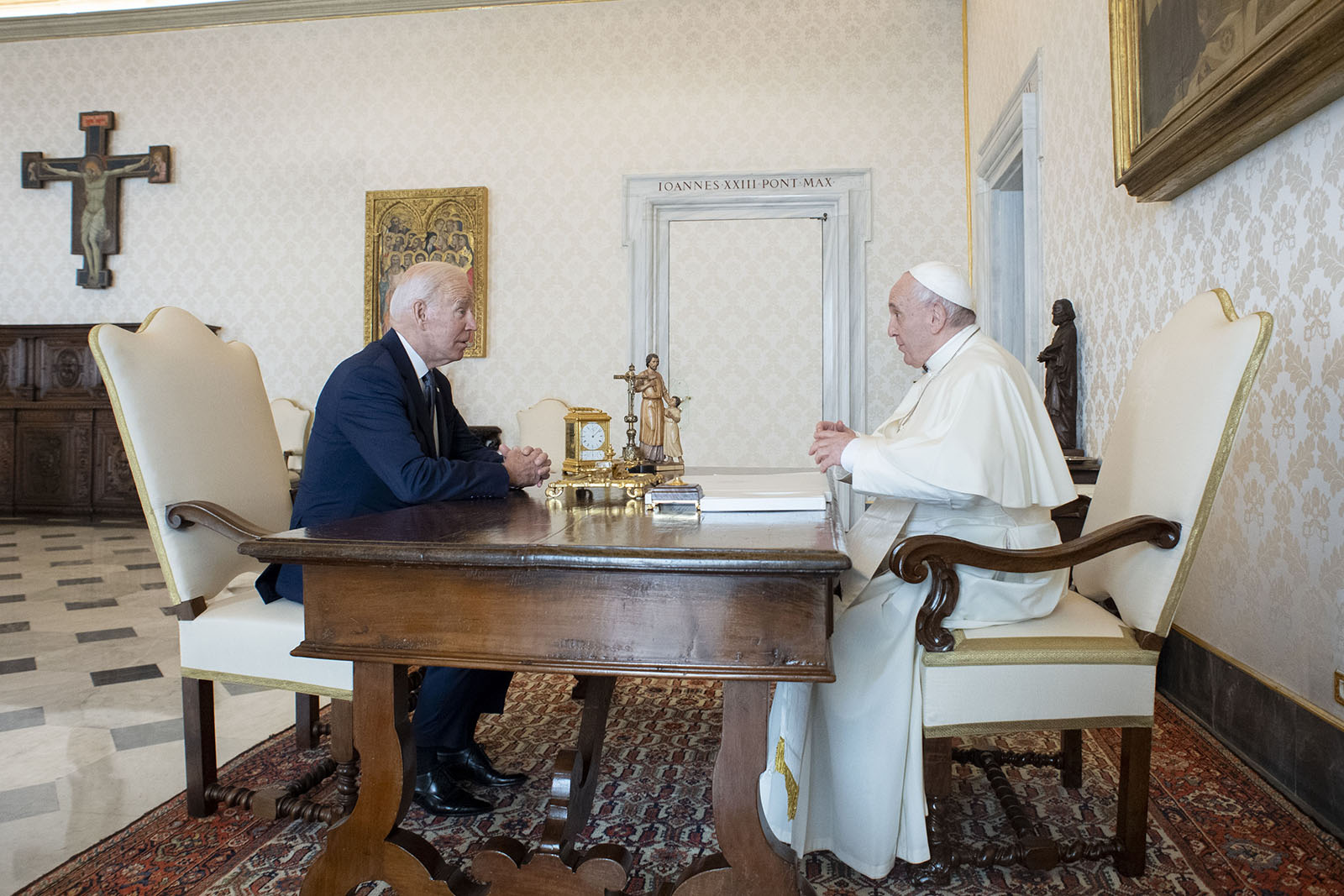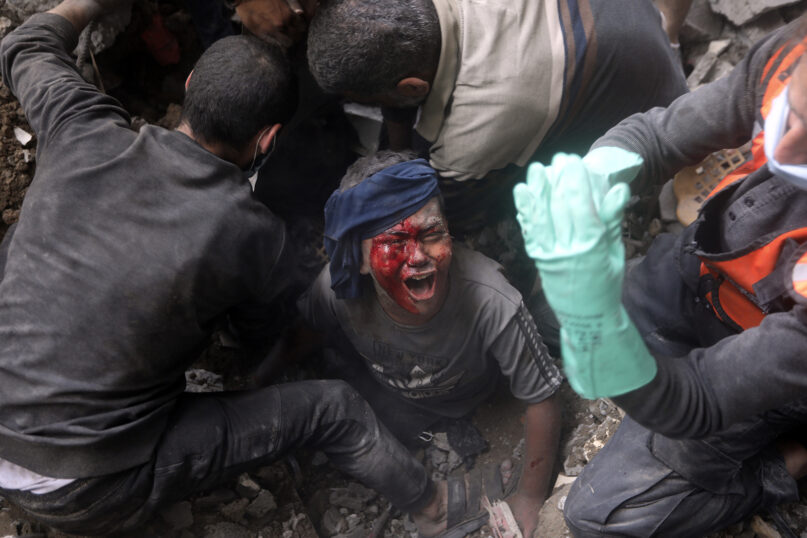(RNS) — On Oct. 22, President Joe Biden spoke to Pope Francis by phone about the crisis in Gaza. Biden told reporters: “The pope and I are on the same page. … The pope was, across the board, supportive of what we’re doing.”
We beg to differ. Pax Christi and other Catholic leaders have paid close attention to what Francis has said about war and war-making these past 10 years: his ceaseless calls for an end to the weapons industry and arms dealing; his assertion that there is no such thing as a just war; and his insistence that “charity and nonviolence govern how we treat each other as individuals, within society and in international life.”
So no, President Biden. Your administration and Francis are not on the same page in providing military aid to the Israeli government as it bombs children in Gaza. Not on the same page when you position a U.S. aircraft carrier and extend military support to the Israeli army as it advances in a ground war that has displaced more than 1 million people. Not on the same page when you obstruct the application of international law to the oppression of Palestinians under the Israeli government’s occupation while championing it in reference to Russia’s invasion of Ukraine.
Francis has consistently rejected war as a fitting tool for building peace. The killing and hostage-taking, the vicious attacks on civilians, the continued siege of Gaza, the increasing violence in the West Bank and the occupation itself illustrate how violence begets violence.
This war did not start with the Hamas attacks on Oct. 7 and it will not stop with more rounds of violence. Perhaps these latest horrors will convince the world that a concerted effort to address root causes toward a comprehensive just peace is needed, not more weapons and military aid.
Rooted in a deep belief in the dignity of every person and of our common home, a nonviolent process toward just peace would begin with the recognition that all Israelis and all Palestinians have a right to live with dignity in peace and freedom.
Specific steps in a nonviolent just peace process would include conflict transformation, which “focuses on engaging the stakeholders in relentless negotiations with the help of credible messengers,” according to theologian Eli McCarthy, who has written extensively on the just peace approach.
“This would include focusing on who has leverage with Israeli leaders and with Hamas leadership,” McCarthy continues, “and then mobilizing them to influence these leaders toward de-escalation, a ceasefire, and accountability. For example, Qatar’s mediation resulted in Hamas releasing four hostages. This norm would also include independent initiatives to repair and build trust, such as offering medical care for all in need rather than cutting off electricity, food, and water.”
Protection and accountability would also be critically important, as would widespread efforts to address both the deep trauma of the Holocaust and the ongoing trauma of occupation. But creating genuine security for Palestinians and Israelis is the bottom line. Key to this is ending the occupation that dehumanizes Palestinians and reaching a viable political agreement that could lead to just peace.
We believe that by slowing things down rather than automatically responding in anger, we can find a solution that leads to peace. In contrast, if we continue to send weapons to a war zone, the dehumanization, destruction and trauma of the community will increase.

President Joe Biden, left, talks with Pope Francis as they meet at the Vatican, Oct. 29, 2021. (Photo by Vatican Media)
If President Biden wants to be on the “same page” with Francis, he can: 1) publicly and clearly call for de-escalation, humanitarian cease-fire and restraint by all sides; 2) call on all parties to prioritize the establishment of more corridors for humanitarian aid to reach the people in Gaza currently in desperate need of food, water, shelter, medical care and electricity; 3) prioritize steps to secure immediate release of hostages and ensure international protection for civilians, and 4) stop any flow of military weapons from the U.S. to the conflict. [See Catholics’ letter to President Biden.]
Francis has said that nations have a right to defend themselves. It is how we choose to defend ourselves that either perpetuates cycles of violence and trauma or breaks them.
On Oct. 24, Myanmar’s Cardinal Charles Maung Bo laid out a path for Catholics. “The violence and trauma being experienced in this moment by the people of Israel and Palestine, as by the people of Myanmar and by so many others around the world, underscore the critical need for humanity to make a dramatic shift from a global paradigm of war and violence to a paradigm of just peace and nonviolence.”
This is what Catholic leadership can look like — both political and religious.
While we have no doubt that Francis approves of any and all efforts at de-escalation, humanitarian aid and working for a just peace in the region, President Biden’s assertions that the pope agrees on U.S. policy in addressing the conflict and is “across-the-board supportive” of the Biden administration’s war doctrine must be challenged for the sake of Israel’s security and the rights of Palestinians.
(The Most Rev. John Stowe is bishop of the Diocese of Lexington, Kentucky, and president of Pax Christi USA. The views expressed in this commentary do not necessarily reflect those of Religion News Service.)





